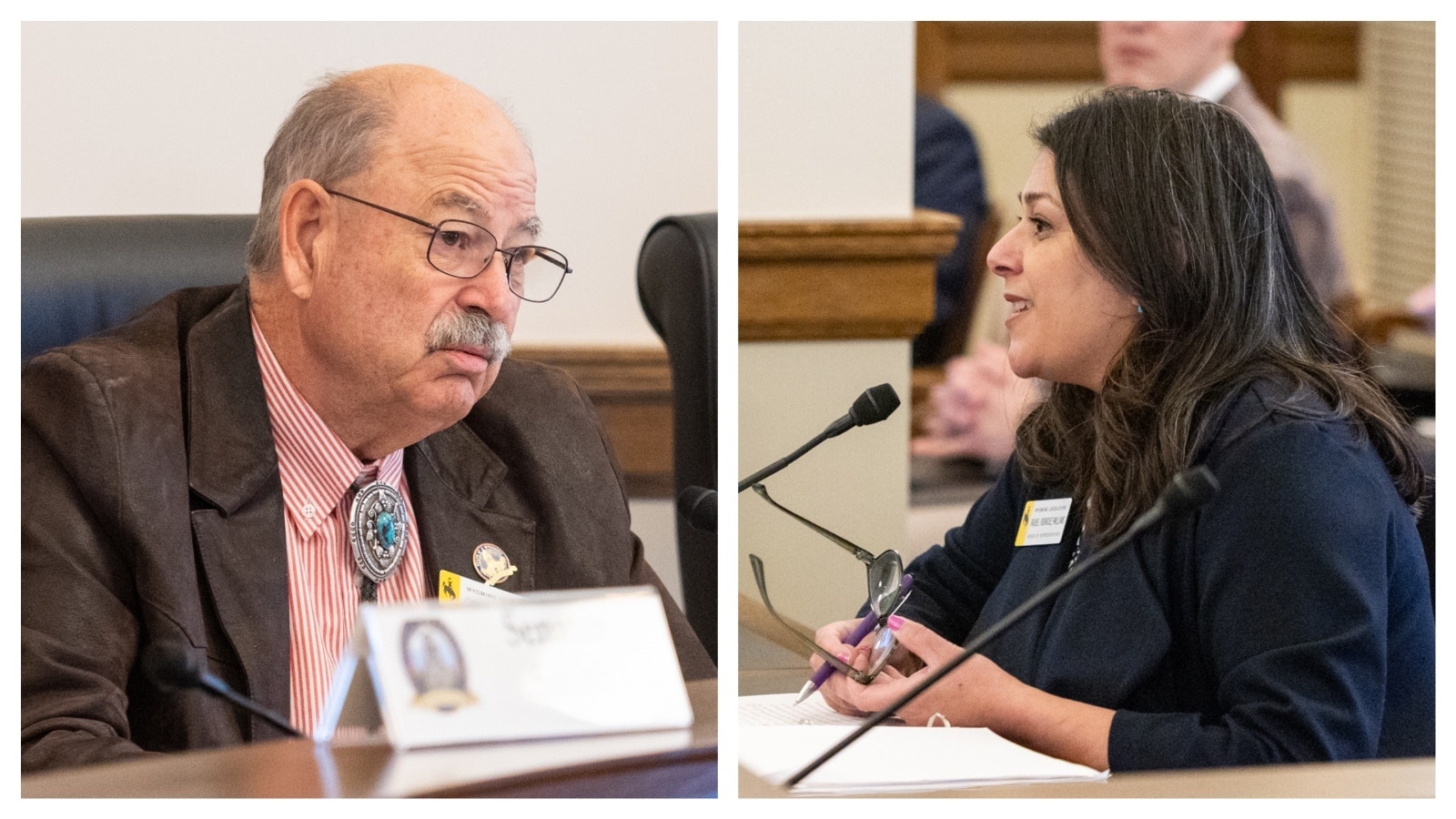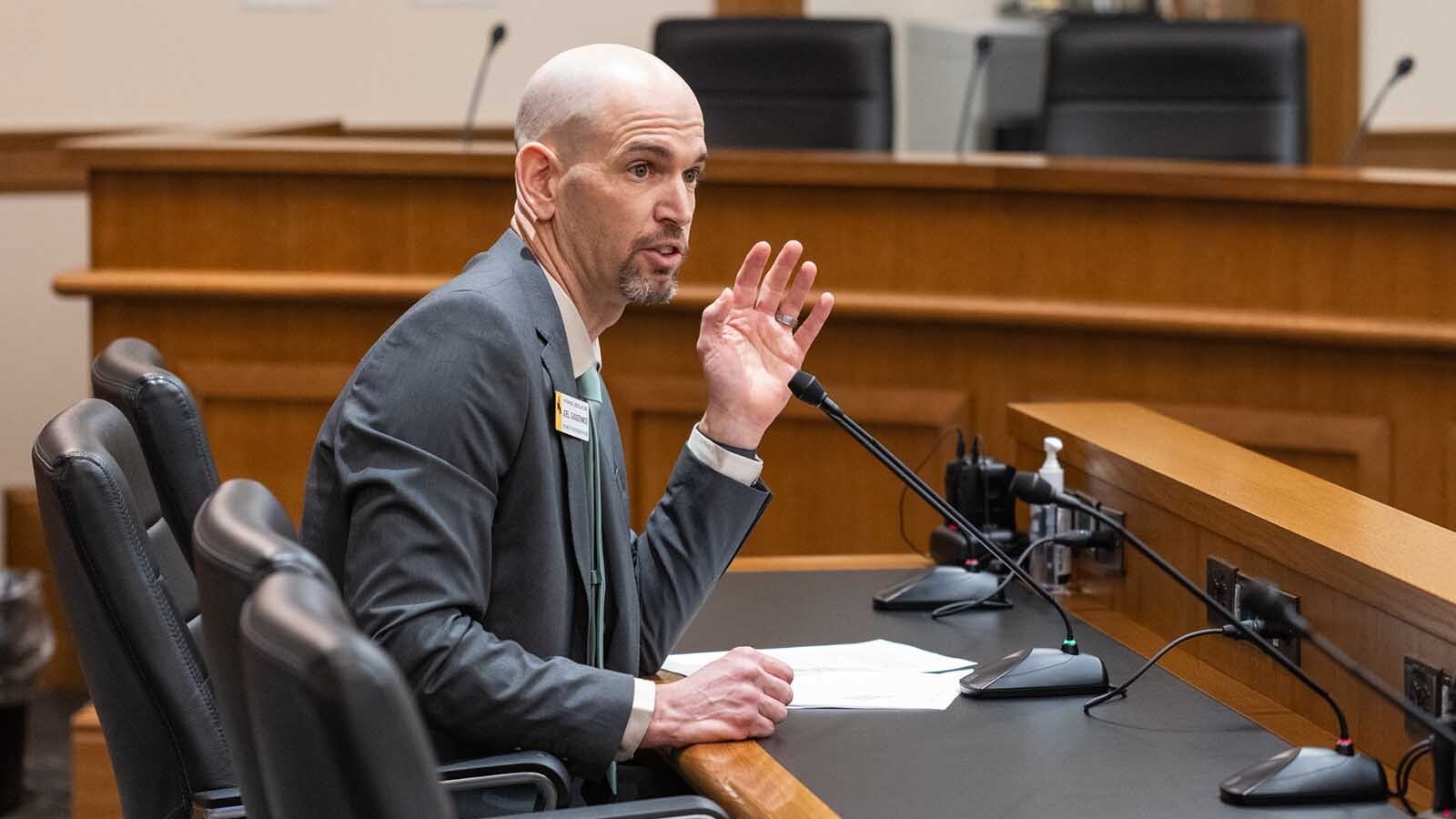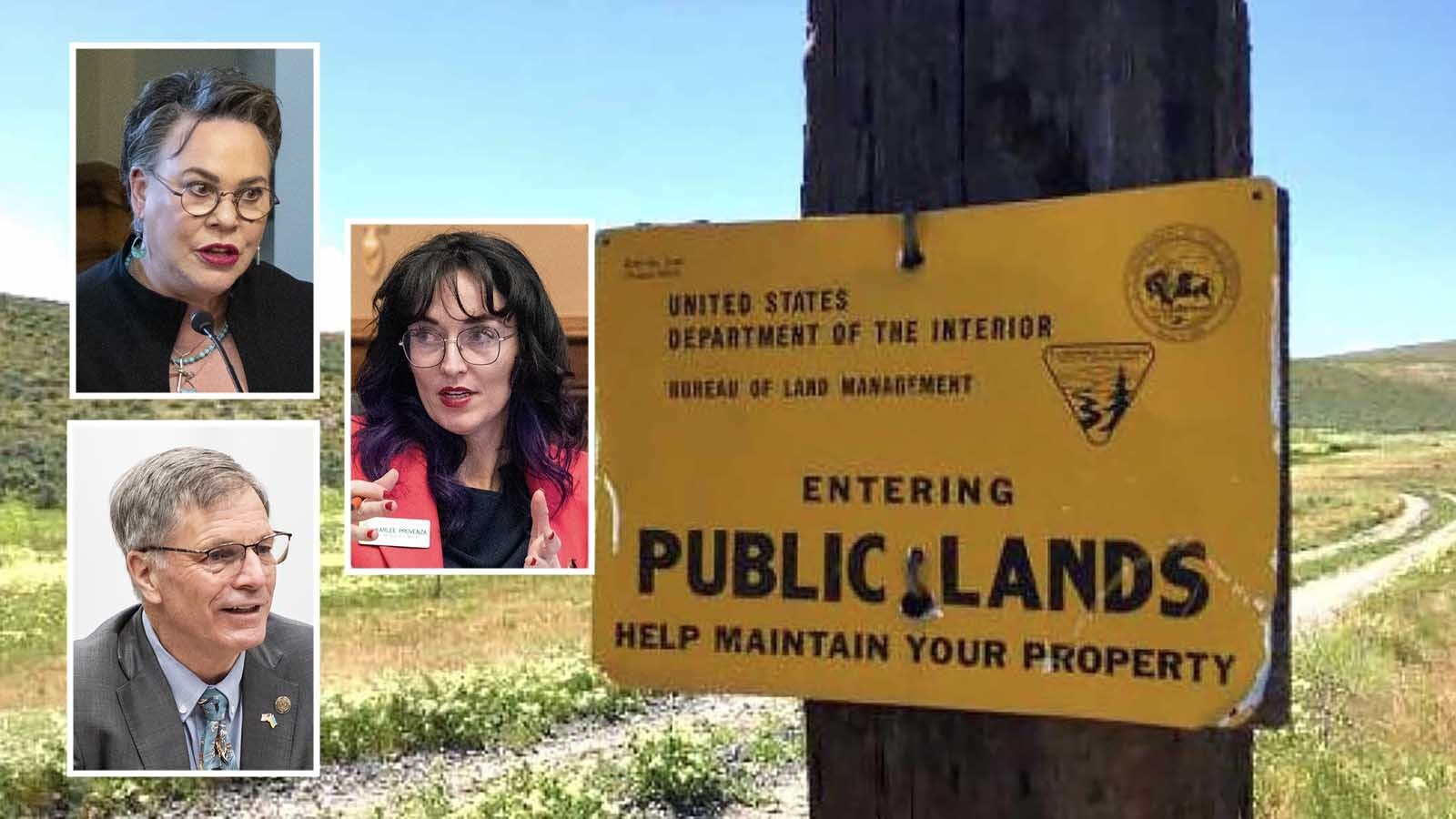Legislation that would have allowed doctors and pharmacists to dispense off-label prescriptions without concern of recourse from medical oversight agencies died in the Senate Health, Labor and Social Services Committee on Monday morning.
Debate about the bill, which would’ve allowed doctors in Wyoming to prescribe medications intended for other conditions, was mostly divided in testimony from Wyoming medical professionals and the perspective of the general public.
COVID Drugs
Although the bill didn’t delineate any specific medications targeted by the bill, the health care industry’s response to COVID-19 overshadowed the conversation.
Specifically, public debate Monday focused on hydroxychloroquine and ivermectin, two medications for other conditions that have provided highly questionable results in the treatment of COVID and have not been recommended by the Centers for Disease Control and Prevention, World Health Organization or Federal Drug Administration for treatment.
State Rep. Sarah Penn, R-Riverton, a nurse practitioner who sponsored House Bill 119, was one of a few medical professionals who expressed support for the legislation, saying doctors should have flexibility to prescribe the two drugs without worrying about getting fired from their jobs.
“These medications actually did save lives,” she said.
Penn said threats have been made against medical professionals by the Wyoming Medical Board for prescribing off-label medications in treating COVID.
Doctor Says They Work
Willard Woods, a Wheatland doctor, was fired in 2021 by Banner Health-owned Platte County Memorial Hospital for prescribing hydroxychloroquine and ivermectin to his patients.
He said of the 750 patients he prescribed these drugs to, there were no negative outcomes or complaints.
“I did not take (to) prescribing these medications simply because someone said they might work,” Woods said.
Woods said the success rate for his patients was much higher than the fatality rate for those who are infected with the virus and credited himself for saving seven or eight lives because of his decision to prescribe off-label to treat COVID.
Others Say It’s Dangrous
A handful of people in the health care industry testified against House Bill 119.
Their largest concern was not debating the efficacy of hydroxychloroquine and ivermectin; rather, it was losing the ability to take action against doctors who make bad or reckless prescriptions.
“It takes out one mechanism for how the medical community police themselves,” said Sheila Bush, executive director for the Wyoming Medical Society.
The committee voted 3-2 against HB 119. The House had passed the bill over to the Senate Feb. 2 with a 44-18 vote.
Repercussions
Most of the medical lobbyists testifying against the bill said they have no problem with the general prescription of off-label drugs, but wanted an immunity clause put in place within the legislation to allow action against doctors when their prescriptions don’t work out.
Penn questioned the committee as to where there’s accountability for the medical industry, which she blames for causing many COVID-19 deaths by opposing the prescription of off-label drugs.
Sen. Lynn Hutchings, R-Cheyenne, agreed and said a liability clause isn’t necessary as patients must specifically consent to all health risks of accepting off-label use of a medicine.
Both Bush and Eric Boley, president of the Wyoming Hospital Association, also suggested narrowing the bill to the prescription of hydroxychloroquine and ivermectin, an idea Penn opposed.
Woods questioned the motivation for hospitals denying the use of alternative medications and said he suspects money is involved with that decision. Many health care professionals testifying for the Wyoming Legislature this year against bills flouting federal guidelines have expressed concern about losing Medicaid funding.
Woods is practicing medicine again through his telemedicine business, but said he is still hamstrung by higher insurance costs because of his termination and a noncompete clause he had signed with Banner Health.
Emotion Vs. Policy
Hutchings brought up how in 2022, Sen. Bo Biteman, R-Ranchester, hugged a doctor on the floor of the Wyoming Senate and thanked the doctor for saving his life by prescribing off-label medication to treat COVID.
“If you can remember that powerful picture of the two gentlemen hugging,” she said, “I’d like to impress that upon us.”
Sen. Eric Barlow, R-Gillette, said there were about 10 amendments he could think of adding to the bill to make it palatable, but none were made so he opposed the legislation. He described HB 119 as a matter of policy, not emption.
Sen. Dan Dockstader, R-Afton, said he was told by a health care professional in his community to oppose the bill, which was his reason for voting against it.
Lander resident Leslie Brewer shared a story of how her whole family ended up with COVID. She said they were denied their requests for alternative treatment at the hospital, which she believed led to serious and fatal consequences.
“That’s what this bill’s about – allowing doctors to try things when there’s a pandemic,” said Sen. Anthony Bouchard, R-Cheyenne.
Brewer believes the Wyoming identity of being a haven for “personal freedoms” and the “ability to make our own choices” didn’t show up when it came to deciding what medications people in the Cowboy State could decide they want to take to treat COVID.
“If you ask any Wyomingite, they’ll tell you they don’t want the overreach in government or the powers that be to dictate our choices, and we pride ourselves in that legacy,” she said. “I do believe our medical teams were silenced.”





